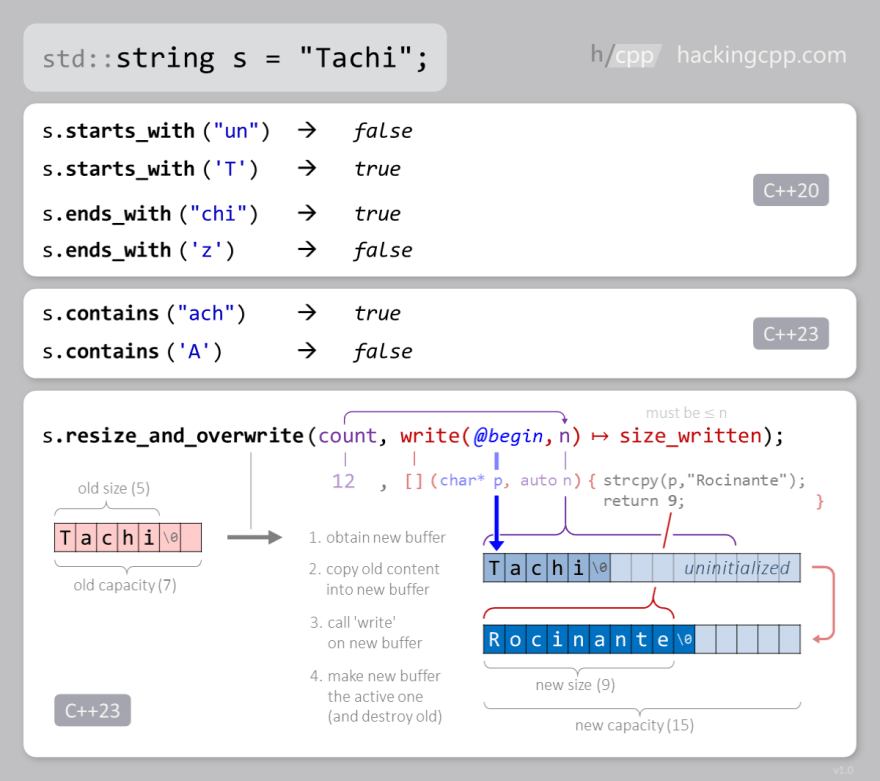Here's a small cheat sheet for 4 new member functions of std::string.
Benefits
resize_and_overwrite avoids costly initialization of a string's memory buffer if you need to immediatly overwrite it with characters coming from e.g., a call to a C API.
// BEFORE:
std::string s1;
s1.resize(1024); // costly initialization
// write characters to string:
size_t sizeWritten = some_C_library(s1.data(), s1.size());
// AFTER:
std::string s2;
s2.resize_and_overwrite(1024, [](char* p, size_t n){
size_t sizeWritten = some_C_library(p, n);
return sizeWritten;
});
Function Signatures and Overloads
namespace std {
template <typename CharT, typename Traits, typename Allocator>
class basic_string {
// ...
bool contains (std::basic_string_view<CharT>);
bool contains (CharT);
bool contains (CharT const*);
bool starts_with (std::basic_string_view<CharT>);
bool starts_with (CharT);
bool starts_with (CharT const*);
bool ends_with (std::basic_string_view<CharT>);
bool ends_with (CharT);
bool ends_with (CharT const*);
template <typename Operation>
constexpr void resize_and_overwrite (size_type count, Operation op);
// ...
};
} // std







Top comments (0)